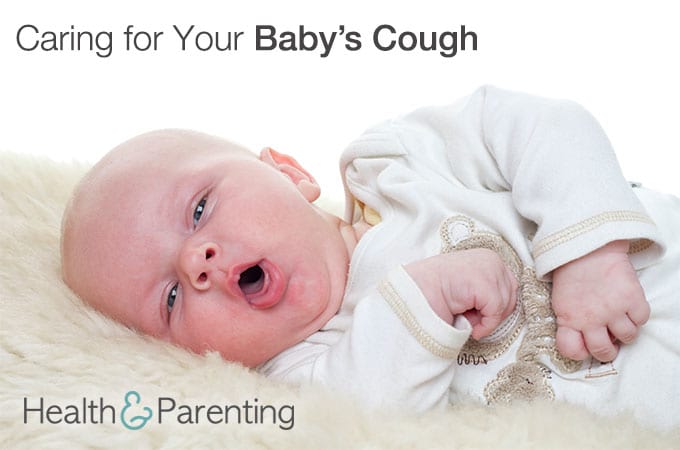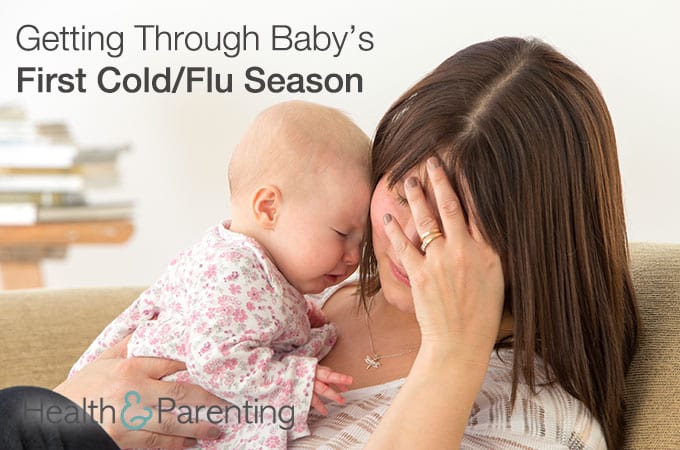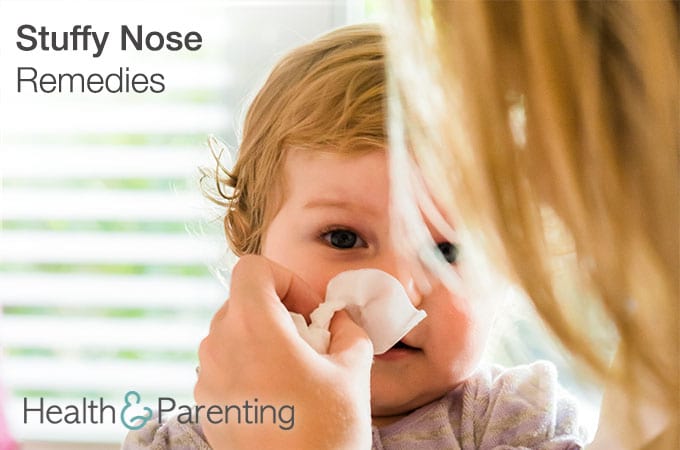At one time or another, your baby is going to come down with a cough. But your baby’s cough can mean different things. For example, a cough can be a symptom of a virus or it could occasionally indicate something more serious. Either way, when your baby starts coughing, it can make any new parent a little nervous. Understanding the causes and knowing how to deal with a cough can help you and your baby feel a bit more comfortable.
Causes of Coughs in Babies
The most common causes of a cough in babies are respiratory infections, such as a cold, respiratory syncytial virus (RSV) and croup. Most babies will become infected with at least one of the above viruses by the time they are two years old.
Symptoms of all three illnesses are similar, but there are subtle differences. For instance, if your baby has RSV, his cough may be worse than a cough from a cold. Babies with croup tend to have a deep, barking cough that worsens at night.
When is Coughing Serious?
In many cases, coughing is not that serious. But there can be instances where coughing is a sign of something more worrisome. For example, coughing can occur if something is caught in your baby’s throat. If your baby starts coughing suddenly while eating, it may be due to a piece of food getting stuck. Try not to panic. If your baby is coughing, it means he is still moving air in and out and will usually be able to cough out the food.
Whooping cough, which occurs due to a bacterial infection, can also lead to severe coughing. Babies who develop whooping cough may have loud, rapid coughing that does not appear to be accompanied by cold symptoms. Whooping cough can be life-threatening in babies and requires immediate treatment. Fortunately, there is a vaccine to prevent whooping cough.
Of course, if your baby is coughing and having trouble breathing, always call for immediate medical help. There may also be other instances when a trip to your pediatrician is a good idea. For example, if your baby is less than three months old and has a cough, it’s best to get her checked out. Also, if your little one is older than three months but is wheezing, has a cough that lasts longer than a few days or coughs up yellow or green mucus, you should also see your doctor.
When it comes to treating your baby’s cough, it’s also best to talk to your doctor first. Don’t give any medications without getting your doctor’s approval. Cough medicine is usually not recommended for babies under two. In most cases, your baby’s cough will clear up without any specific treatment. In the meantime, a little extra cuddling and snuggle time may be just what the doctor ordered.
Written by MaryAnn DePietro @writerlady34
This information is not intended to replace the advice of a trained medical doctor. Health & Parenting Ltd disclaims any liability for the decisions you make based on this information, which is provided to you on a general information basis only and not as a substitute for personalized medical advice. All contents copyright © Health & Parenting Ltd 2016. All rights reserved.












